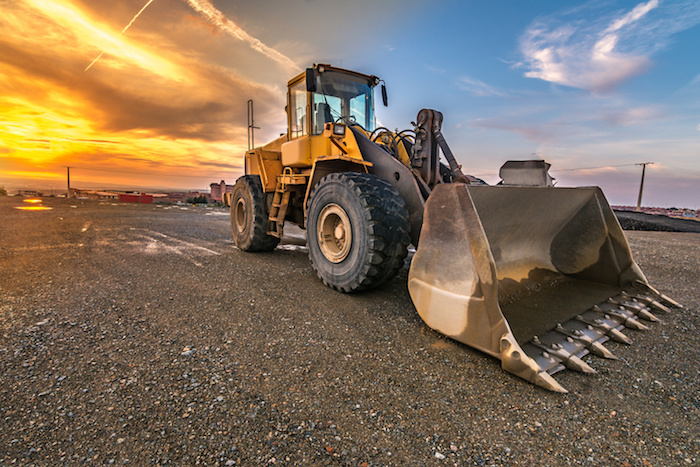Rental Company in Tuscaloosa AL: Top-Quality Equipment for each Task
Rental Company in Tuscaloosa AL: Top-Quality Equipment for each Task
Blog Article
Discovering the Financial Benefits of Leasing Building And Construction Devices Contrasted to Owning It Long-Term
The decision between possessing and renting building equipment is essential for monetary management in the industry. Renting deals instant price financial savings and functional flexibility, permitting business to designate resources a lot more efficiently. Understanding these subtleties is crucial, especially when taking into consideration exactly how they align with specific task needs and economic strategies.

Cost Comparison: Renting Vs. Possessing
When reviewing the monetary ramifications of possessing versus leasing building devices, a complete price comparison is crucial for making informed decisions. The selection between leasing and having can substantially impact a company's profits, and recognizing the connected costs is critical.
Leasing building and construction tools typically includes lower ahead of time expenses, allowing services to designate funding to various other functional needs. Rental prices can accumulate over time, potentially exceeding the cost of possession if tools is required for an extensive duration.
Alternatively, owning building and construction devices calls for a considerable initial financial investment, together with recurring prices such as insurance coverage, funding, and devaluation. While ownership can bring about long-term cost savings, it likewise binds funding and may not offer the same degree of versatility as leasing. In addition, possessing devices necessitates a commitment to its usage, which might not constantly align with task demands.
Ultimately, the choice to possess or lease ought to be based on a detailed evaluation of certain task demands, financial capability, and long-lasting tactical goals.

Upkeep Expenses and Responsibilities
The selection between renting out and having construction tools not only entails economic factors to consider but additionally includes ongoing upkeep expenditures and responsibilities. Owning equipment needs a considerable dedication to its upkeep, that includes routine inspections, fixings, and possible upgrades. These responsibilities can rapidly build up, bring about unexpected costs that can stress a budget.
On the other hand, when renting out equipment, upkeep is generally the responsibility of the rental business. This setup allows service providers to prevent the monetary worry linked with wear and tear, in addition to the logistical difficulties of scheduling repairs. Rental agreements often consist of provisions for maintenance, indicating that specialists can focus on completing tasks instead of fretting about tools condition.
Furthermore, the varied variety of equipment available for rental fee allows firms to choose the current designs with innovative technology, which can boost efficiency and productivity - scissor lift rental in Tuscaloosa Al. By deciding for rentals, businesses can avoid the long-lasting obligation of tools depreciation and the associated maintenance frustrations. Ultimately, evaluating upkeep costs and responsibilities is vital for making an informed choice about whether to rent out or have building devices, substantially influencing overall job expenses and operational efficiency
.png)
Devaluation Effect On Possession

A significant element to consider in the choice to own building and construction equipment is the effect of devaluation on total ownership expenses. Depreciation stands for the decrease in worth of the equipment over time, affected by elements such as usage, damage, and advancements in innovation. As tools ages, its market price decreases, which can substantially influence the proprietor's financial placement when it comes time to market or trade the tools.
For construction business, this depreciation can convert dig this to considerable losses if the devices is not used to its greatest capacity or if it ends up being obsolete. Owners should account for devaluation in their financial projections, which can result in higher overall expenses contrasted to renting. Additionally, the tax obligation effects of depreciation can be intricate; while it may give some tax obligation advantages, these are usually offset by the reality of decreased resale worth.
Ultimately, the worry of depreciation stresses the relevance of understanding the long-lasting monetary commitment associated with possessing construction equipment. Business have to meticulously review exactly how often they will certainly make use of the tools and the possible financial influence of depreciation to make an educated choice regarding possession versus leasing.
Financial Adaptability of Renting Out
Renting out building and construction devices supplies considerable economic versatility, enabling business to allot resources a lot more efficiently. This adaptability is particularly crucial in a market defined by resource varying task needs and varying work. By opting to rent, companies can stay clear of the substantial resources outlay needed for buying tools, maintaining capital for other functional needs.
Additionally, renting out tools enables companies to customize their tools selections to specific task needs without the long-term dedication related to ownership. This means that businesses can quickly scale their devices stock up or down based upon current and anticipated project requirements. As a result, this adaptability minimizes the threat of over-investment in machinery that may become underutilized or out-of-date gradually.
One more financial benefit of renting out is the possibility for tax obligation benefits. Rental settlements are commonly taken into consideration business expenses, enabling immediate tax obligation deductions, unlike devaluation on owned and operated devices, which is spread over several years. scissor lift rental in Tuscaloosa Al. This instant expenditure trailer rental for heavy equipment acknowledgment can further enhance a business's cash position
Long-Term Job Factors To Consider
When reviewing the long-term demands of a building company, the choice in between renting and having equipment becomes more complex. For projects with extended timelines, purchasing equipment might appear beneficial due to the capacity for lower general expenses.
The building market is evolving quickly, with new devices offering boosted performance and safety attributes. This adaptability is especially beneficial for organizations that deal with varied projects requiring various types of devices.
Furthermore, monetary security plays a critical role. Owning devices typically involves considerable capital investment and depreciation worries, while leasing enables for even more foreseeable budgeting and cash money flow. Eventually, the choice in between renting and having ought to be straightened with the calculated goals of the building and construction company, considering both current and expected job needs.
Final Thought
In conclusion, renting out building and construction equipment uses considerable financial advantages over lasting ownership. Eventually, the decision to lease instead than very own aligns with the dynamic nature of construction jobs, enabling for adaptability and accessibility to the newest devices without the economic concerns associated with ownership.
As tools ages, its market value decreases, which can substantially influence the owner's monetary position when it comes time to sell or trade the tools.
Renting out building equipment provides considerable economic flexibility, enabling business to allot sources a lot more effectively.Furthermore, leasing equipment enables firms to tailor their equipment choices to details job needs without the lasting commitment associated with ownership.In conclusion, renting out building equipment provides considerable economic benefits over lasting possession. Ultimately, the decision to rent out rather than own aligns with the vibrant nature of building tasks, permitting for versatility and accessibility to the most current devices without the monetary concerns associated with possession.
Report this page